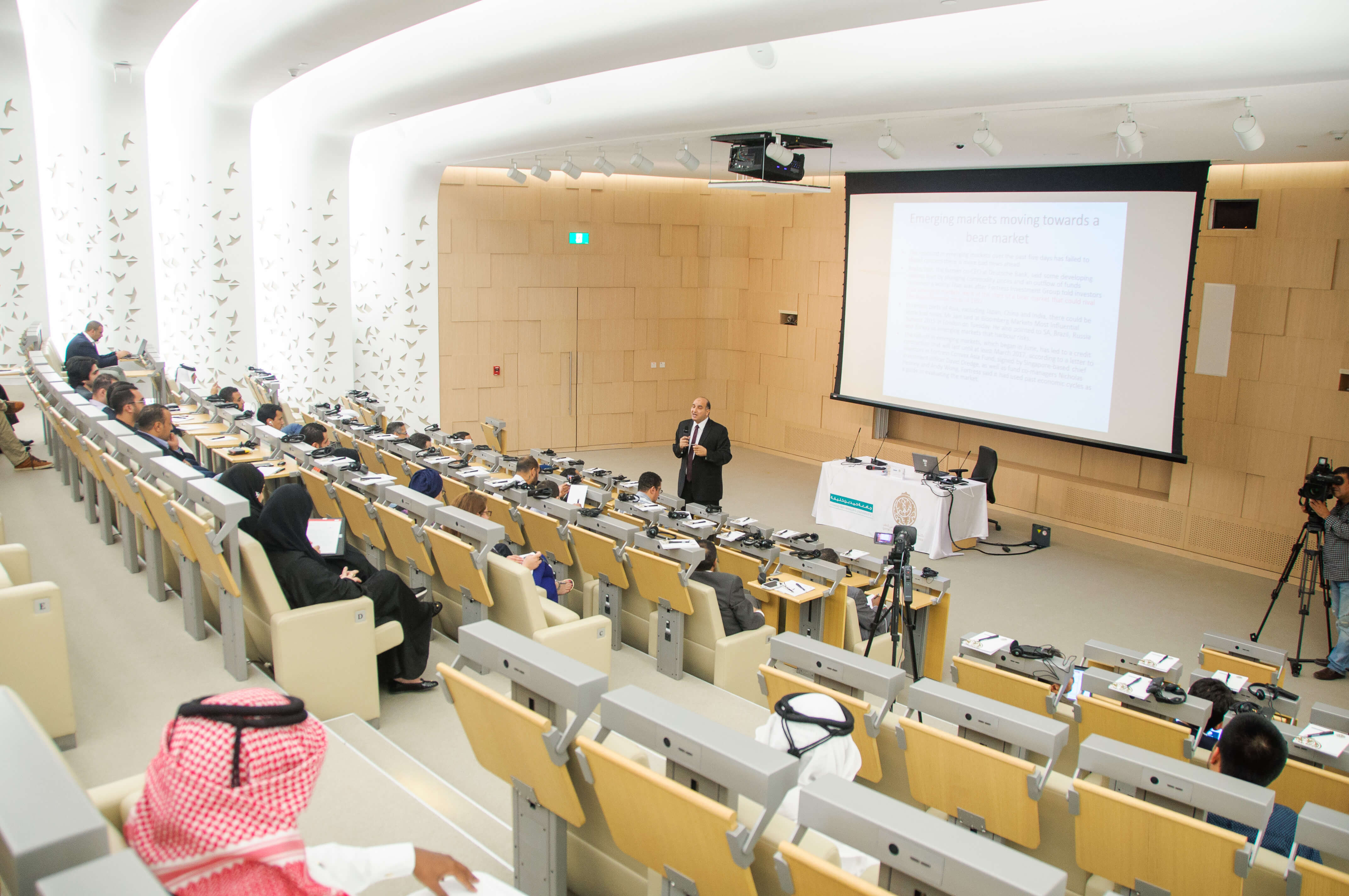
The Center for Islamic Economics and Finance at Qatar Faculty of Islamic Studies (QFIS), a college of Hamad Bin Khalifa University (HBKU), which in turn is a member of Qatar Foundation for Education, Science and Community Development hosted a public lecture by Dr. Elsayed Elsiefy, Professor of Finance and Investment at QFIS, on “The Influence of Foreign Investors on Arab Stock Markets”. The talk took place on October 13, 2015 and highlighted the role of the most important players in Arab stock markets such as Foreign Investment Funds and Foreign Institutional Investors.
The lecture discussed the negative impacts foreign investors may create due to their sudden entry and exit, a practice commonly known as “Hot Money”, noting that foreign investors are exempt from dividend taxes and capital gain taxes.
Dr. Elsiefy noted that international players often influence the Arab stock market via hedge funds, derivatives, and future contracts. Investing in these tools puts pressure on raw materials and commodity markets and eventually reduces their prices, thereby affecting both the emerging countries that produce primary products and the developed countries that witness a rise in the prices of final products. Reflecting on this, he explained how advanced countries can support the development of emerging countries by sharing knowledge and technological innovations and mentioned the need to establish new funds that enable emerging countries to recycle their primary products and add value before import.
The lecture also discussed how establishing investment banks and other specialized institutions can protect emerging markets and concluded with Dr. Elsiefy drawing attention to markets needing institutional support: “I appeal to Arab governments to implement a taxation system that forces people to hold shares for a longer period of time, allowing more liquidity in the market as an attempt to avoid risks and achieve more stability, similar the American taxation system."
The talk was one of many organized throughout the year by HBKU’s Qatar Faculty of Islamic Studies and builds upon faculty research, with the university offering a Master of Science degree in Islamic Finance. HBKU is now accepting applications for all of its undergraduate and postgraduate programs. Those interested are encouraged to learn more about the university’s offerings at http://www.hbku.edu.qa/.





